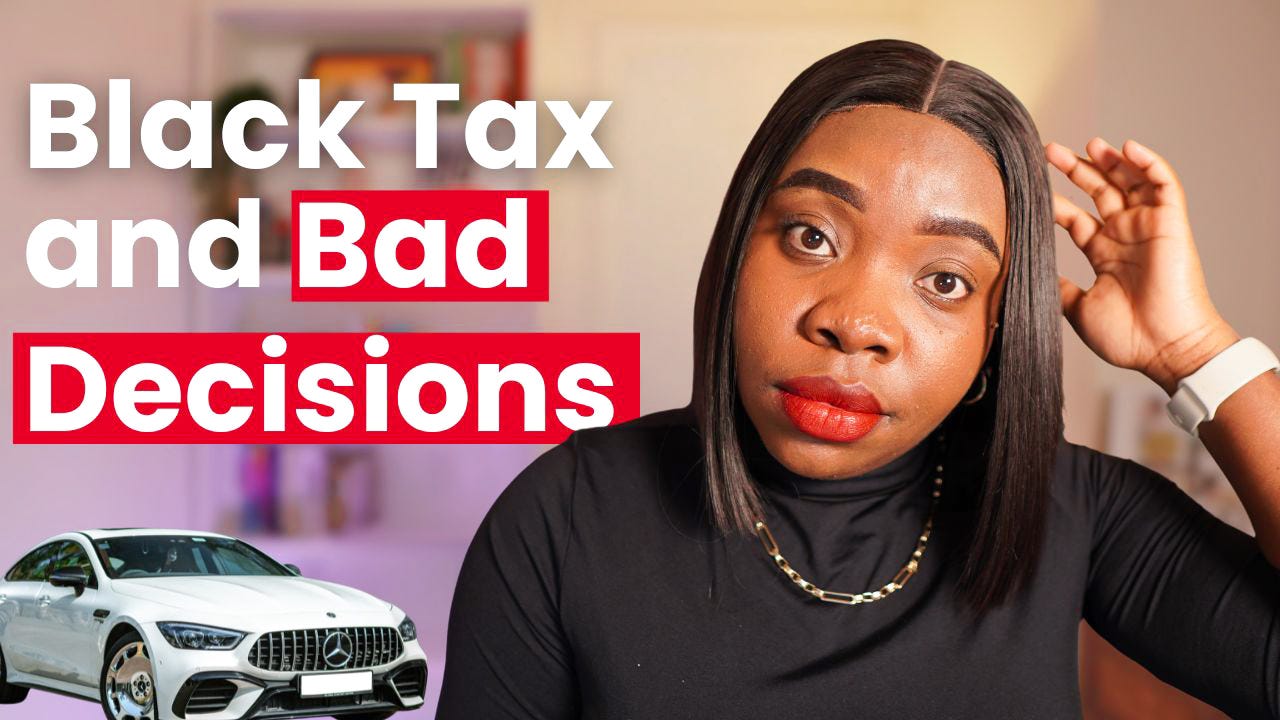Hey friend,
Last week, I shared how I doubled my income—and the response? Whew. The comments, the DMs, the forwards to your friends and network… I see you. ❤️
So today, we’re diving into Part 2: two game-changing habits that helped me grow not just my income, but my confidence and career direction. These are practical tips you can easily apply.
Let’s get into it 👇🏾
📚 3. Upskilling (Every. Single. Year.)
Every year, I focus on improving one key skill—and it doesn't always have to be through a certified course. The goal is simple: to keep investing in myself.
For example:
In 2022, I took a Diploma in Digital Marketing to get a strong grip on email marketing, paid search, and performance metrics.
In 2024, I upskilled with a Data Analysis for Management diploma to learn SQL, Tableau, and data modelling—all critical for the next stage of my career.
And in 2025, I’ve taken a course on Leading Teams with Empathy—because leadership is a skill, and I want to be a better manager.
One way to start this journey?
Do a Skills Audit—either once or twice a year. Here’s how:
🔍 How to Run a Quick Skills Audit
Study the Path
Find someone on LinkedIn who’s doing what you want to be doing in 1–3 years.
Look through their profile: What skills do they list? What courses or certifications have they completed? What kind of work are they sharing?
Ask for Feedback
Book time with your manager or mentor.
Ask: “What skills would you recommend I develop to prepare for a promotion or leadership role?”
Don’t just listen—take notes and create a plan.
Review Your Role Requirements
Look at job descriptions for roles you're aiming for next.
Highlight recurring skills you don’t have or tools you know how to use yet. That’s your gap.
Pick ONE Skill to Focus On
Choose a skill that will have real impact—not just what’s trendy.
This could be technical (e.g., data analysis) or soft (e.g., public speaking, people management).
Remember: this isn’t about collecting certificates for your wall. It’s about building skills that move the needle—in your confidence, career growth, and earning potential.
🧠 4. Mindful Spending
I used to spend money emotionally, especially on impulse buying. If I was tired or stressed… that checkout button was getting clicked.
But now? I spend with intention.
Here’s what’s helped:
Tracking my money monthly using my Income and Expenses Tracker
Practicing delayed gratification—not every “I want” is an “I need right now”
Creating a realistic budget that actually supports my lifestyle, not what finance gurus say I should be doing
That means including:
A pamper day/fun fund (yes, YOLO 😌)
A birthday fund for myself and loved ones
A family support fund, because that’s a real part of life for many of us
The goal isn’t to restrict myself—it’s to plan for the things that matter so I don’t feel guilty when they happen—freedom, not friction.
🎥 New Video: “I Make £2,600 Monthly But I’m Still Broke” - NHS Nurse
Ever wondered how someone earning £2,600 per month (after taxes) can still feel constantly broke?
In this brand new series, I break down the real-life finances of a 29-year-old NHS worker living in London. It’s so relatable and might make you rethink how you manage your money.
💸 Want Me to Review Your Finances for FREE?
Introducing something new: Fix My Finances.
This is your chance to have me anonymously review your real money situation—just like the NHS nurse in this week’s video. I’ll break it down with kindness and practical insight, and I might feature it in a future email or video.
📝 Submit your details here:
Fix My Finances – Submit Yours Now
Remember, whether you’re brushing up your skills or finally telling your budget who’s boss, just know the real glow-up isn’t always loud. Sometimes it’s just you, your Google Calendar, and a spreadsheet on a random Tuesday night.
You’re doing amazing, sweetie! (yes, I said it)
Till next week,
XOXO
– Chidera





